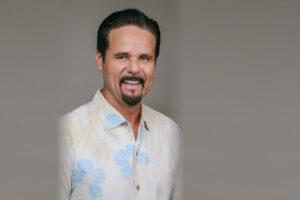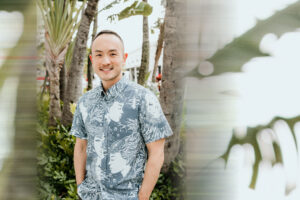Problem solving comes naturally to idea man and serial entrepreneur Michael Tsang. He started his first company at the age of 16, partnering up with a friend from a well-connected family to raise money for an early version of microlending. In just two years of investing in and lending money to small, local businesses, they turned their starting fund into $5 million. “Then I went to college,” Tsang says casually.
With one success already under his belt and some money to his name, he could have gone in a number of directions after college but chose to work as an employee for other companies, including, at one point, selling Mitsubishi F-15 fighter jets to the Japanese Defense Agency.
That was one of the last jobs Tsang had as an employee, and the job that taught him how to run a business. “It was an ‘everything’ job,” he says. “I was a one-man show for a multibillion-dollar company.”
From there, Tsang had a few bumps in the road, including starting a company that emptied out his 401(k). To raise the cash needed to start another company, he hosted a sample sale for fashion designers, making a commission from selling their clothes. In the process of planning the sale, Tsang went to his bank for information on accepting credit card payments from customers. He left an impression on the local salesman after taking almost a full month to negotiate a deal and was offered a job selling credit cards to the Asian market.
“I was all the way at the bottom of the totem pole, but I climbed,” Tsang says. “I got higher and higher up, and now I have [my own] processing company.” According to Tsang, his company Super Processor is one of only about a dozen credit card processing companies in the world.
Build things people are already waiting for.
In moving operations to Hawai‘i, he found a market in need. “We spent 10 years on a solution for the cannabis industry,” he says. “And in order to serve that market, we needed to own more pieces of what goes into a transaction. We needed to own all of it. So that’s why we became a full processing company.”
A self-professed void finder and filler, Tsang says he doesn’t like the phrase, “build it and they will come.” Instead, he says, “build things people are already waiting for.”
Tsang’s most recent projects, MyGoCenter and MyGoKids, stemmed from another gap he found while running Super Processor. He needed a coworking space; when he couldn’t find one on the west side of the island, Tsang decided to open one himself and created the model for MyGoCenter in Kapolei.
Busy running Super Processor as well as the security camera company HI-Tech Cams—not to mention working as a specialized commercial realtor with Myland Hawaii Realty—Tsang was initially uninvolved with MyGoCenter’s operations but is now hard at work expanding the MyGoCenter concept, starting with a second location at Ala Moana Center. He plans to open four to five MyGoCenter locations across O‘ahu and create a membership model allowing members access to any of the locations.
The Ala Moana Center location is a much larger undertaking than the one in Kapolei and will include a professional recording studio with $50,000 worth of recording equipment, a photo and video studio with a cyclorama wall that doubles as a mini screening room, plus an event space that can hold up to 100 people.
And that’s not all Tsang is bringing to Ala Moana. A father of three, he noticed members bringing in their kids and began toying with the idea of infusing child care into MyGoCenter, realizing that coworking and childcare go hand in hand.
“I got excited about the concept of a kids center and realized it has to be a business in itself,” Tsang says. “There are a lot of coworking spaces that have child care and day care within. But I felt it needed its own initiative, its own team. It’s kids—everything about it has to be number one.”
In his excitement, Tsang wrote up a business plan for MyGoKids overnight and shelved it for a later date. While he was still scouting locations around and in Ala Moana Center for a second MyGoCenter, mall operator GGP approached him about bringing child care into the mall. He jumped at the chance to share his idea, though he had no immediate plans to go through with it.
Tsang ultimately turned the project down and continued to focus on coworking. Over a two-month period, however, GGP convinced him to push the kids center forward and offered up a 5,800-square-foot space, half dedicated to MyGoCenter and half to MyGoKids. The center will have a rock-climbing wall with a projected educational game, a basketball court, virtual reality surfing and a multi-use room with programs ranging from yoga and breakdancing to 3-D printing and origami.
MyGoCenter’s initiative is to combine education and play. “Everything we do will have an educational component,” Tsang says. “It’s a good way to get kids to enjoy learning. I think many kids have difficulties in school because they’re not interested. We want to make education a little more digestible for them.”
As a manager and owner, Tsang doesn’t hesitate to step in to fill any position if necessary. “I like to be in the trenches,” he says. “It gives me a pulse on what’s going on in the centers.”
He encourages his team to make mistakes as long as they can have an open dialogue about what when wrong. He encourages entrepreneurs to do the same. “It’s like learning to ride a bike,” he says. “If you fall, you adjust, try again and you get better. [But] it’s not a light-at-the-end-of-the-tunnel situation. If you’re an entrepreneur, you have to be the one shining that light.”



